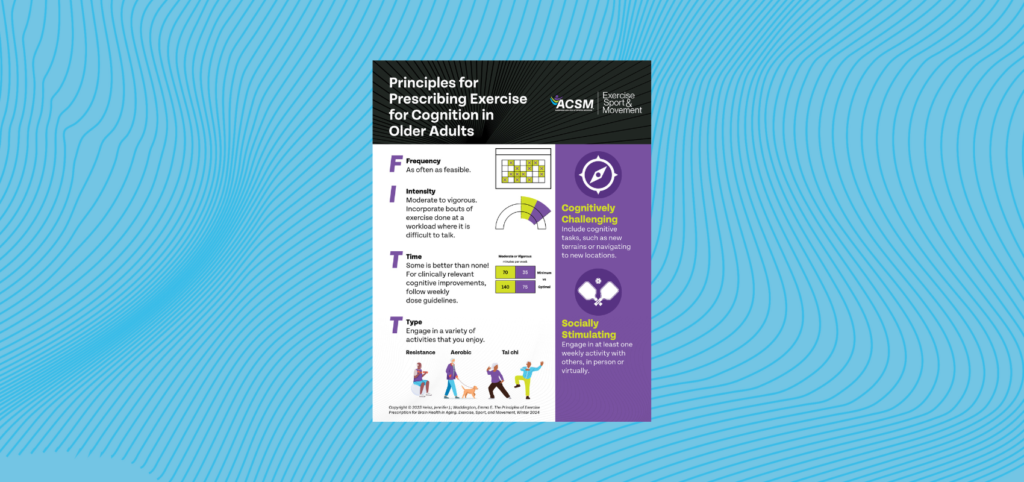The Preventive Cardiology department at Henry Ford Health in Detroit, Michigan, employs 18 clinical exercise physiologists (CEPs) across three sites, as well as two registered dieticians (RDs); there are no other allied health professionals on staff.
The Henry Ford Health CEPs provide a wide variety of services:
- Adult weight management — counseling patients on physical activity, nutrition (in conjunction with an RD) and adherence to meal plans.
- Bariatrics — working with patients prior to their surgery to help them understand the role that physical activity plays in weight maintenance.
- Cardiac rehabilitation (CR) — providing traditional, facility-based CR, including Phase 3 as well as telehealth CR.
- Cardiopulmonary stress testing — CEPs prepare patients and monitor vital signs during testing. CEPs with a master’s degree or higher supervise testing under the direction of a physician who is located in the immediate vicinity.
- Exercise oncology — working with patients who have a cancer diagnosis and may or may not be actively receiving treatment.
- Peripheral arterial disease (PAD) — providing supervised exercise training and risk-factor reduction education to patients with symptomatic PAD.
- Research — supporting clinical trials where exercise is either being used as an intervention for a chronic disease or where changes in exercise capacity are an expected outcome.
For all of these categories, the CEP documents the service provided (e.g., CR with continuous ECG monitoring, in the electronic medical record [EMR]). Where appropriate, the CEP will also enter a charge that generates a billing claim using the health system’s National Provider Identifier (NPI) number. The health system then receives reimbursement for the services rendered from third-party payers with whom it has a contractual agreement. At no time does an individual CEP or RD use their own NPI number to submit claims for direct reimbursement from a third-party payer; all claims are made on behalf of the facility.
There are some programs for which a contractual agreement for reimbursement is either entirely unavailable or unavailable from certain payers. Specifically, the adult weight management program is not covered by all payers. Patients wishing to take part in the program without insurance coverage are asked to self-pay. All of the Phase 3 participants are self-pay. The work done in the bariatric program is considered part of a diagnosis-related group where all services provided as part of a procedure are included in a lump-sum reimbursement to the facility. The exercise oncology program is predominately grant funded, with participants asked only to make a small, token payment to encourage patient buy-in. Lastly, the CEPs involved in research have their salary covered by the clinical trial they are supporting equivalent to the amount of time spent on that trial, i.e., if they spend 50% of their time supporting a specific trial, that trial covers 50% of their salary.
The current group of billing codes that are in widespread use for services delivered by CEPs (i.e., cardiac rehabilitation, exercise stress testing, etc.) describe services provided by a facility, not an individual. Therefore, the facility NPI number is used on claims submissions. The purpose behind a CEP obtaining an NPI number is to facilitate ACSM in determining how many CEPs are currently employed by health care systems in the United States. This information is and will be used by third-party payors when evaluating new billing codes for reimbursement purposes. It would make little sense to decide to provide a service to beneficiaries only to discover later that there is a shortage of qualified providers. Obtaining an NPI now is an important and necessary step towards increasing opportunities for CEPs in the future.

Robert Berry, MS, ACSM-CEP, is a Master’s prepared Clinical Exercise Physiologist (CEP) earning his graduate degree in Health Promotion and Education from the University of Pittsburgh in 1999. He obtained his ACSM-CEP certification in 1999 and his ACSM-RCEP certification in 2005. Robert has over 20 years’ experience in cardiac rehabilitation (CR) and is the Clinical Coordinator of Cardiac Rehabilitation for Henry Ford Hospital in Detroit, Michigan where he designed and implemented the first telehealth CR program in the United States to be reimbursed by a third party payer.




